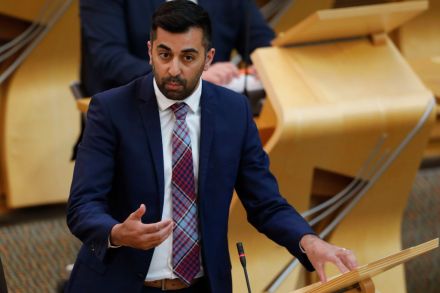Scotland’s chilling new blasphemy law
The new Hate Crime Bill proposed by the Scottish Government is a sweeping threat to freedom of speech and conscience. The draft law radically expands the power of the state to punish expression and expression-adjacent behaviour, such as possession of ‘inflammatory material’. It provides for the prosecution of ill-defined ‘organisations’ (and individuals within them) and could even see actors and directors prosecuted if a play they perform is considered to contain a hate crime. Its schedule of protected characteristics is extended beyond race (which covers ethnicity, national origin and citizenship) to include age, disability, ‘religion or… perceived religious affiliation’, sexual orientation, transgender identity and ‘variations in sex characteristics’. If the




















